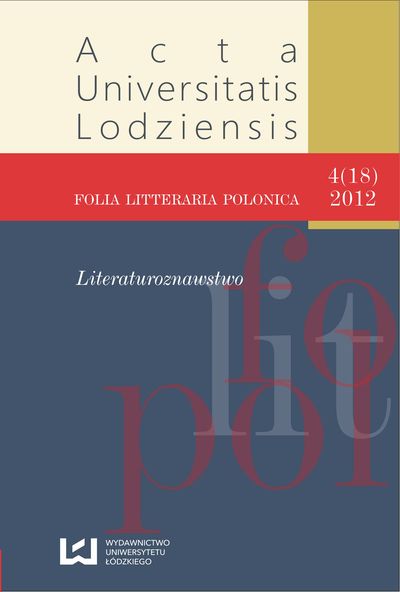Światło dzienne i doświadczenie amerykańskie Czesława Miłosza
DOI:
https://doi.org/10.18778/1505-9057.18.11Abstrakt
Miłosz’s volume Światło dzienne (Daylight, 1953) is conventionally read by critics as political poetry deeply engaged with history. The article offers a corrective to this traditional reading by interpreting the volume as interplay of European and American influences. As a European poet, Miłosz had experienced the violent demise of ideals at the foundation of the Old World. Światło dzienne is, therefore, at one level, an elegiac volume in which both persons and ideas are mourned. On the other hand, to the extent that America continues for Miłosz the noble ideas abandoned in Europe, he cannot accept what he regards as their misguided or perverse incarnations. This explains the emotional climate of the whole volume, with its dominant mood of disappointment, anger and refusal of reconciliation. Światło dzienne is American in its outlook in taking seriously America’s status as a superpower and its influence on the future direction of global history. It is anti-American, however, in identifying America’s perceived failures to live up to the post-war challenge for human civilization in general and the consequent dangers. The article intends to assess Miłosz’s debt to English-language poetry in this volume in light of his personal notes from his reading and translation work at the time.
Pobrania
Pobrania
Opublikowane
Jak cytować
Numer
Dział
Licencja

Utwór dostępny jest na licencji Creative Commons Uznanie autorstwa – Użycie niekomercyjne – Bez utworów zależnych 4.0 Międzynarodowe.











